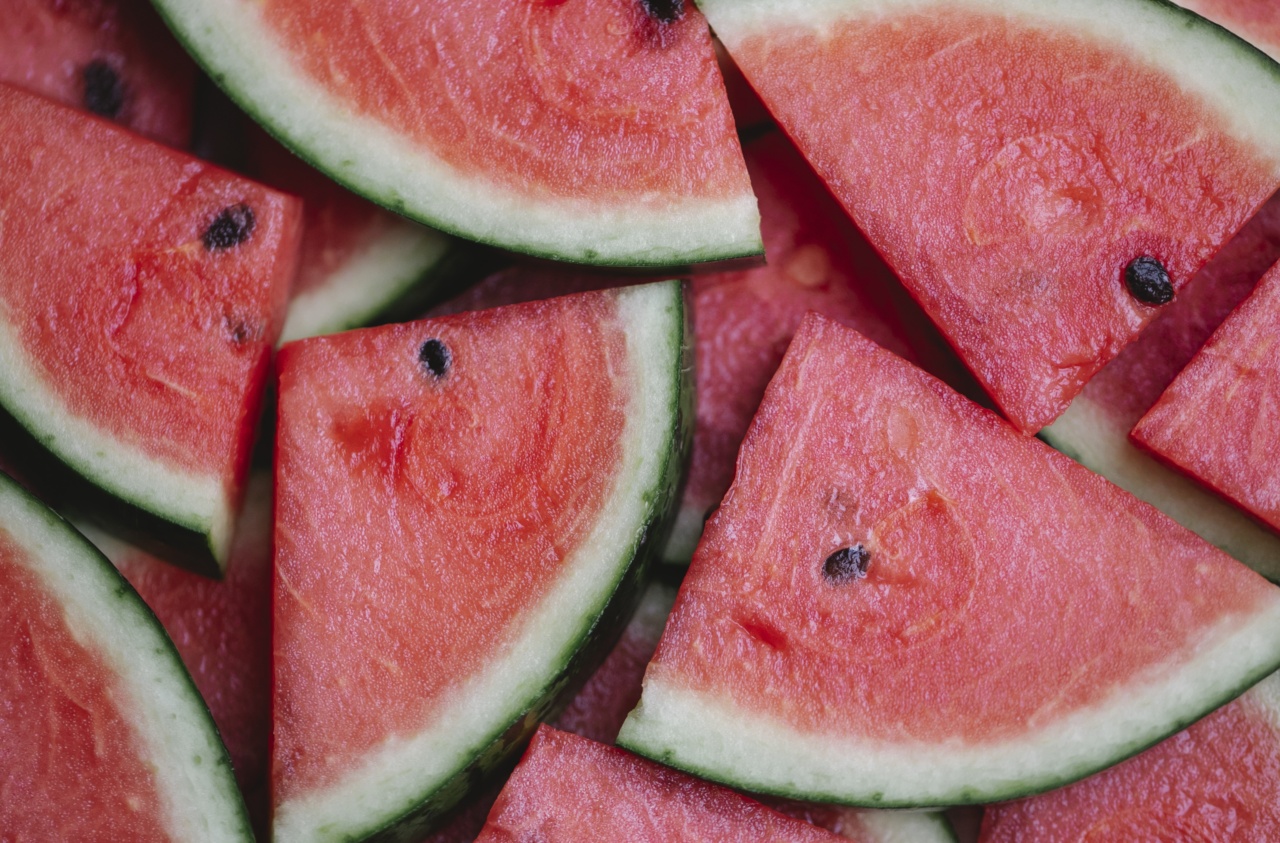When it comes to maintaining a healthy brain, incorporating the right foods into your diet is essential. Among the many options available, red fruits stand out for their incredible benefits.
Packed with essential nutrients and antioxidants, these vibrant fruits offer a variety of advantages for your cognitive health. From improving memory and focus to reducing the risk of age-related mental decline, red fruits truly are nature’s brain food. In this article, we will explore some of the most popular and beneficial red fruits for your brain.
1. Strawberries
Strawberries are not only delicious but also packed with health-boosting properties. These bright red berries are rich in antioxidants, including anthocyanins, which have been linked to improved brain function.
Anthocyanins help protect brain cells from oxidative stress and inflammation, reducing the risk of neurodegenerative diseases such as Alzheimer’s and Parkinson’s. Additionally, strawberries are a great source of vitamin C, an essential nutrient for preventing mental decline and maintaining cognitive function.
2. Cherries
Cherries are not only a sweet and tasty treat but also highly beneficial for your brain. They are loaded with antioxidants, specifically flavonoids, which help reduce inflammation and oxidative stress in the brain.
These effects have been linked to improved memory and cognitive function, making cherries an excellent choice for maintaining optimal brain health. Moreover, cherries contain high levels of melatonin, a hormone that helps regulate sleep patterns, ensuring a good night’s rest for optimal brain function.
3. Raspberries
Raspberries, with their exquisite taste and vibrant color, are another fantastic red fruit for the brain. These berries are rich in antioxidants, including vitamin C and quercetin, which are known to have neuroprotective effects.
Regular consumption of raspberries can help improve memory, prevent oxidative damage to brain cells, and enhance overall cognitive function. Additionally, raspberries are a good source of fiber, which supports gut health and has been linked to improved brain health.
4. Pomegranates
Pomegranates have been celebrated for their health benefits for centuries, and their positive effects on the brain are no exception.
These remarkable fruits are packed with antioxidants, particularly punicalagins, which have been shown to enhance brain function and improve memory. Pomegranates also have anti-inflammatory properties, reducing the risk of chronic inflammation in the brain that can lead to cognitive decline.
Consuming pomegranate juice or incorporating the fruit into your diet can provide a powerful boost to your brain health.
5. Cranberries
Cranberries are often associated with urinary tract health, but their benefits go beyond that.
These tart berries contain a significant amount of antioxidants, such as proanthocyanidins, which may help improve memory and prevent age-related mental decline. Cranberries also have anti-inflammatory properties and can protect brain cells from damage caused by oxidative stress.
Incorporating cranberries into your diet, whether in the form of juice, dried fruit, or as part of a dish, can positively impact your cognitive health.
6. Tomatoes
Although often mistaken as a vegetable, tomatoes are technically a fruit and a highly beneficial one for brain health.
These juicy red fruits are an excellent source of lycopene, a potent antioxidant that has been shown to protect brain cells from oxidative stress and reduce the risk of neurodegenerative diseases. Lycopene also has anti-inflammatory properties, further enhancing its beneficial effects on cognitive function. Enjoying tomatoes in salads, sauces, or as a standalone snack can be a great way to support your brain health.
7. Watermelon
Watermelon, with its refreshing and hydrating properties, is not only a great summer fruit but also a brain-boosting choice.
This juicy fruit is an excellent source of antioxidants, such as vitamin C and lycopene, both of which protect brain cells from damage caused by free radicals. In addition to its antioxidant properties, watermelon also contains citrulline, an amino acid that promotes healthy blood flow, providing your brain with essential nutrients and oxygen.
So, next time you’re enjoying a slice of watermelon, know that you’re also nourishing your brain.
8. Apples
Apples, often referred to as the “perfect snack,” offer numerous health benefits, including those for the brain.
These fruits are packed with antioxidants, particularly quercetin, which has been shown to protect brain cells against oxidative stress and reduce inflammation in the brain. Regular consumption of apples has been associated with decreased risk of neurodegenerative diseases and improved cognitive function.
Remember the saying, “An apple a day keeps the doctor away”? Well, it may just keep cognitive decline at bay too!.
9. Red Grapes
Red grapes, whether enjoyed fresh or in the form of wine or juice, offer a wide array of benefits for brain health. These small yet powerful fruits contain resveratrol, a compound that has been shown to improve memory and cognitive function.
Resveratrol has also been linked to increased blood flow to the brain and reduced risk of age-related mental decline. However, it’s important to consume red grapes in moderation and consult with a healthcare professional if you have any concerns or specific health conditions.
10. Red Plums
Red plums, also known as blood plums or red heart plums, are a delicious fruit with significant brain-boosting properties.
These fruits contain various antioxidants, including vitamin C, which help protect brain cells from oxidative stress and reduce inflammation. Red plums also provide a good amount of vitamin K, which is essential for maintaining brain health and cognitive function. Including red plums in your diet can be a tasty way to support your brain in its optimal functioning.
Conclusion
Incorporating red fruits into your diet is a flavorful way to boost your brain health. From strawberries and cherries to pomegranates and red grapes, these vibrant fruits offer a wide range of antioxidants and beneficial compounds.
By protecting brain cells from oxidative stress, reducing inflammation, and enhancing blood flow to the brain, red fruits can improve memory, cognitive function, and reduce the risk of neurodegenerative diseases. So, don’t hesitate to add a splash of color to your diet and enjoy the many brain-boosting benefits of nature’s red fruits.





























